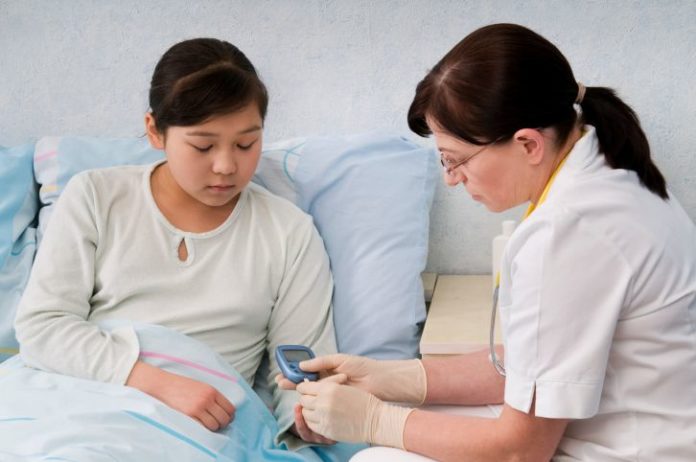Although there is some concern that hypoglycemia may adversely affect the developing brain, critically ill children who had been treated with tight glucose control during an intensive care unit admission did not have a worse measure of intelligence four years later than children who received usual care, despite frequent, brief episodes of hypoglycemia, according to a study appearing in the October 24/31 issue of JAMA. The study is being published early online to coincide with its presentation at the European Society of Intensive Care Medicine Annual Congress.
In critically ill children, hyperglycemia may deleteriously affect brain integrity and cognition. In 2009, a large randomized controlled trial with 700 patients revealed that tight glucose control (TGC) to normoglycemia reduced intensive care illness and death compared with usual care (UC), but increased hypoglycemia. Symptomatic hypoglycemia in young children has been associated with variable brain damage. “Therefore, the use of TGC in young patients in the intensive care unit (ICU) may have both beneficial and deleterious effects on various parts of the developing brain, with potentially long-term consequences for neurocognitive development,” according to background information in the article.
Dieter Mesotten, M.D., Ph.D., of the Catholic University of Leuven, Belgium, and colleagues conducted a long-term follow-up of a clinical trial that included 700 patients to exclude possible harm evoked by TGC in critically ill children during ICU treatment, and to validate short-term benefits. The randomized controlled trial included patients ages 16 years or younger who were admitted to the pediatric ICU of the University Hospitals in Leuven, Belgium, between October 2004 and December 2007. Follow-up was scheduled after 3 years with infants assessed at 4 years old between August 2008 and January 2012. For comparison, 216 healthy siblings and unrelated children were tested.
The primary outcomes measured for the study were intelligence (full-scale intelligence quotient [IQ]), as assessed with age-adjusted tests. Further neurodevelopmental testing encompassed tests for visual-motor integration; attention, motor coordination, executive functions; memory; and behavior.
Of the 700 patients in the study, 569 patients were alive and eligible for testing at follow-up. Twenty-seven children could not be reached and 86 children declined participation (16 percent of the total population, no difference between TGC and UC groups). At a median (midpoint) of 3.9 years after randomization, TGC in the ICU did not affect full-scale IQ score (median 88.0 vs. 88.5 for UC). The number of patients with a poor outcome (death or disability) at follow-up was similar in the TGC (68/349 [19 percent]) and UC (63/351 [18 percent]) groups. Other scores for intelligence, visual-motor integration, and memory also did not differ between groups. Brief hypoglycemia evoked by TGC was not associated with worse neurocognitive outcome. In the TGC group, motor coordination was actually improved (9 percent to 20 percent better) and also cognitive flexibility (19 percent better).
The authors write that their data “provide evidence that some of the neurocognitive impairment previously reported in children who have been critically ill could be beneficially affected by altering medical care.”
“In conclusion, 4 years after childhood critical illness, TGC to age-adjusted normoglycemia in an experienced ICU, despite having frequently evoked brief episodes of hypoglycemia, did not cause any detectable harm to intelligence and improved other areas of cognition.”
Source: JAMA











